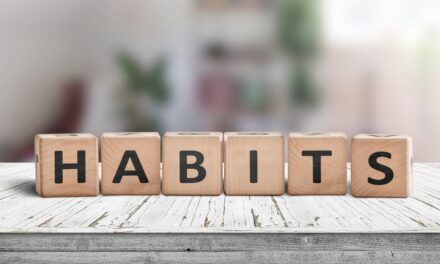To be successful, you must believe that you will become successful.
If one wants to be successful, one must believe that one will become successful. To believe in something, you have to have a vision of it. You must see yourself as being successful and actually think that it can happen. Visualising your success is the first step in achieving it.
Entrepreneurship is not for the faint of heart. They must be persistent and work hard to make their dreams come true. However, these entrepreneurs also need to believe that they will succeed if they work hard and persevere.
A successful entrepreneur must have conviction in their product or service and the ability to foresee future trends in the market with a certain degree of accuracy.
Self-belief is believing in yourself, in your abilities, and in your potential.
Self-belief is the willingness to explore your potential, to be optimistic about the future and to be persistent in the face of adversity.
We live in a time of immense change. We are faced with formidable challenges, and we all face the risk of failure. But what if we saw these as opportunities? What if we could find the power within ourselves to overcome these trials and find success?
Self-belief is not an innate quality, but it can be learned over time. Self-belief is a skill that everyone can learn, and you do not need to wait for someone else to believe in you.
Why is self-belief important?
Self-belief is the foundation of your success. It is an idea that you believe in yourself and keeps going no matter what. It is the confidence to do what you want and to believe in yourself. You need to believe in yourself so that you can know that you can do anything that you put your mind to.
It is essential because if you don’t believe in yourself, how can you do anything? You have to motivate yourself for hard things to be done. You need to keep going when you see that the road ahead is difficult or even impossible.
Motivation is the driving force behind any goal-oriented person. You need to believe in yourself for anything to go right. You have to have the drive and determination to keep going when you are tired, hungry or feeling down.
If you don’t believe in yourself, how can you expect anyone else to?
The science behind success and self-belief
Success is, of course, a subjective term. But what it means to one person may not mean the same thing to another. Success in one’s career may be different from success in one’s personal life.
The current climate seems ripe for possibility and optimism. If there were ever a good time to take risks and explore new opportunities, it would be now. However, knowing how to do this efficiently is key – self-doubt can cloud judgement or lead us down paths that are less likely to succeed than others.
Self-doubt is the enemy of creativity. It’s a toxic force that can prevent an idea from being fully formed and, in some cases, even stop an idea before it starts.
People with a strong self-belief are more likely to be successful. When individuals are confident in themselves, they are more likely to take on challenging tasks and reach for opportunities. Self-doubt often leads to risk avoidance and less personal development.
A person’s success was highly dependent on how much they believed in themselves. A lack of self-confidence can affect many aspects of life, including relationships, career, and happiness levels.
Your own sense of worth and value.
All of us have a sense of worth and value. How you define your own is up to you.
Your sense of self-worth is what makes you unique. It determines how you react to the world around you and interact with other people, which in turn affects how they perceive and interact with you.
It’s important that we all find our worth, not just for our sake but also for the sake of those around us.
While defining your worth, it’s essential to understand your self-esteem and your self-confidence.
Everyone has their own way of gauging their self-esteem. Some people look to friends and family for validation, while others look to their career success. The best way to find out for sure is to think about what you say to yourself in your head. Do you constantly criticise yourself or feel like you don’t deserve anything? If you are hard on yourself or don’t value yourself, then you have low self-esteem.
You may also have low self-confidence if you can’t imagine positive outcomes to events that haven’t even happened yet. Imagining the positive outcomes of events that haven’t even happened yet is difficult. It’s hard to imagine a future where things go well when you’ve been burned so many times by life. And sometimes, we find it easier to stay in our comfort zones instead of pushing ourselves out into the world.
How to cultivate your own self-belief?
It’s important to know that you are valuable and have something to offer – whether it’s a skill you can provide or a personality trait. If you don’t know who you are and what you can offer, there will be nothing for other people to believe in.
Here are some of the things you can do to cultivating self-belief:
Start accepting the compliments. When someone tells you something nice, look them in the eye and say thank you. You may feel a little embarrassed, but if you can take the compliment without deflecting it, then you’ll be able to accept the next one with ease.
Start noticing the good things about yourself. Think about what you like about your appearance, your personality, or your skills. Keep track of your successes and really think about how those reflect on you as a person.
Be confident in your abilities and work towards improving them every day. This will help you feel better about yourself and give you a sense of accomplishment when you see progress being made.
And finally, start making decisions on your own. And, as Anthony Robbins says, “If an immediate action does not follow the decision, you have not really taken the decision.”











